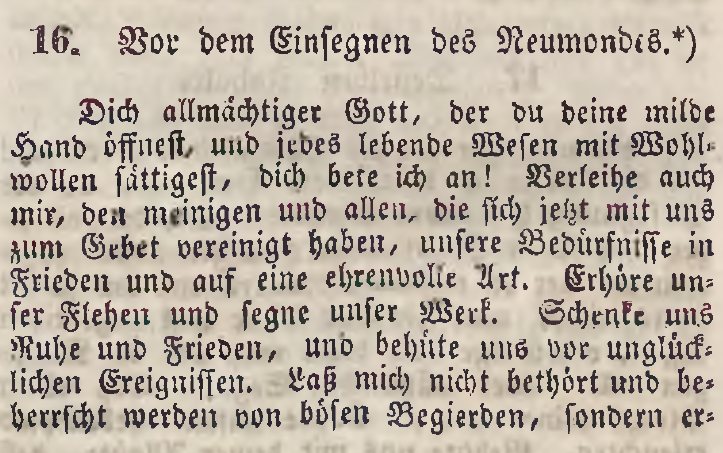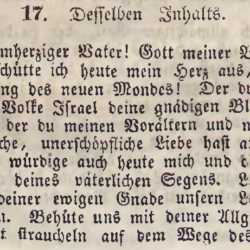TOGGLE COLUMNS (on/off):ADJUST COLUMN POSITIONS: select the column header cell and drag it where you want. show me!COPY INDIVIDUAL COLUMN(S): use CopyTables, a browser extension.
| Source (German) | Translation (English) |
|---|---|
Beim Schluß des Gottesdienstes in der Synagoge. |
At the end of the service in the synagogue. |
Du kennst, o Ewiger, die Kurzsichtigkeit der Geschöpfe dieser Erde! wir haben dich gelobt, gepriesen, angebetet und Wohlthaten von deiner Barmherzigkeit erfleht; nimm, o Ewiger, unsere Worte so auf, als wären sie deiner erhabenen Majestät würdig. Schwach ist unsre Einsicht, noch schwächer, ach, ist unsre Kraft; stark und reich ist nur unser Wille, der heilige Wille, zu thun was uns als Menschen ziemt, und was deiner Erhabenheit würdig ist. Du kennst unsern Willen und wirst ihn uns als That anrechnen. |
You know, O Eternal One, the short-sightedness of the creatures of this earth! We have praised you, extolled you, worshipped you, and implored benefits from your mercy; receive, O Eternal One, our words as if they were worthy of your sublime majesty. Our insight is weak, our strength is even weaker; strong and rich is only our will, the holy will to do what befits us as human beings and what is worthy of your majesty. You know our will and will credit it to us as a deed. |
Mögen sie dir angenehm sein die Worte meines Mundes und die Gedanken meines Herzens, Ewiger mein Gott und mein Erlöser. |
May the words of my mouth and the thoughts of my heart be pleasing to you, Eternal my God and my Redeemer. (Psalms 19:15) |
“Beim Schluß des Gottesdienstes in der Synagoge” was translated/adapted by Yehoshua Heshil Miro and published in his anthology of teḥinot, בית יעקב (Beit Yaaqov) Allgemeines Gebetbuch für gebildete Frauen mosaischer Religion. It first appears in the 1829 edition, תחנות Teḥinot ein Gebetbuch für gebildete Frauenzimmer mosaischer Religion as teḥinah №20 on p. 24. In the 1835 edition, it appears as teḥinah №20 on p. 28. In the 1842 edition, it appears as teḥinah №22 on p. 31.
We welcome corrections and improvements. The transcription of the German from Latin script in Fraktur type provided machine-readable text for a machine translation by DeepL, which we then edited for accuracy and clarity. –Aharon Varady
Source(s)



“Beim Schluß des Gottesdienstes in der Synagoge | At the end of the service in the synagogue, a teḥinah by Yehoshua Heshil Miro (1829)” is shared through the Open Siddur Project with a Creative Commons Attribution-ShareAlike 4.0 International copyleft license.










Comments, Corrections, and Queries